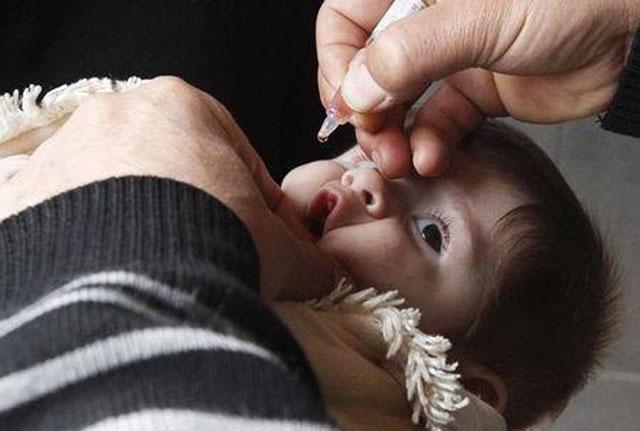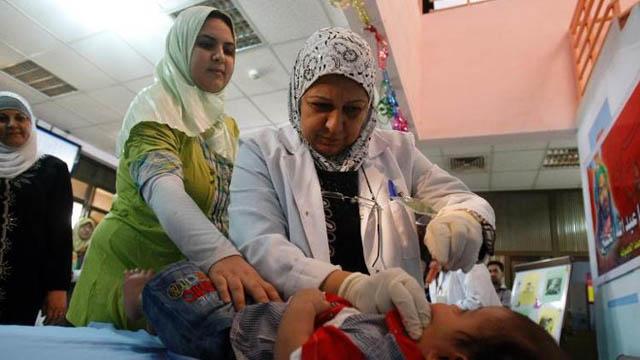You are here
Polio still threatens Middle East after Syria, Iraq cases — UN
By Reuters - Jul 22,2014 - Last updated at Jul 22,2014

GENEVA — Thirty-six children in Syria and two in Iraq have been paralysed by polio since October, and the risk of the virus spreading further in the Middle East remains high, UN aid agencies said on Tuesday.
A crippling and incurable disease, polio erupted in October in the northeast province of Deir Al Zor, marking Syria’s first outbreak since 1999. The two cases recorded in Iraq this year were in Iraqi children living in the Baghdad area.
A polio vaccination campaign reached a record 25 million children in seven countries of the Middle East between December and June, but aid agencies need to go back to them again for follow-up shots in a second phase planned from August, the World Health Organisation and UN Children’s Fund (UNICEF) said.
The idea is to vaccinate every child between three and six times, but many of the 3 million children in Syria cannot be reached even once, the agencies said.
“It is now even more imperative to reach every child multiple times and to do whatever we can to vaccinate children we could not reach in previous rounds,” UNICEF regional director for the Middle East and North Africa Maria Calivis said in the report, “Outbreak in the Middle East — War in Syria opens the Door to an Old Enemy”.
Children in Syria are at greatest risk as routine immunisation has been disrupted and many health centres are severely damaged after more than three years of conflict, it said. Nearly three million Syrian refugees, including many health workers, have fled to neighbouring countries.
All but one of the 36 known polio cases in Syria were recorded last year, according to the WHO. Most were in Deir Al Zor, but others were in Aleppo, Idlib, Hama and Hassakeh.
Polio invades the nervous system and can cause irreversible paralysis within hours.
“Right now we estimate that there are 765,000 children inside Syria who live in areas that are hard to reach. And as long as we don’t get full and regular access to these children, the chances of polio spreading further will continue to exist,” UNICEF spokeswoman Juliette Touma told a news briefing.
The government of President Bashar Assad and rebel groups have supported vaccination, WHO spokeswoman Sona Bari said.
“We had tremendous cooperation across lines, both opposition groups and the government are very committed to have polio vaccination for their children,” Bari told Reuters.
“There has been good coverage. It is really where active fighting is going on where it is hard to reach children and do any humanitarian work. Phase two is about reaching those hard to reach children,” she said.
A UN Security Council resolution last week authorised convoys into rebel-held areas without Syrian government consent at four border crossings from Turkey, Iraq and Jordan. The mechanism is still being set up and convoys have yet to roll.
“We hope that resolution 2165 will allow us to reach some of the children that we have not reached. We have pre-positioned supplies in warehouses in Turkey and in Jordan,” Touma said.
Related Articles
With a new anti-polio immunisation campaign slated for the end of November in Jordan, officials and UN agency representatives have called for focusing on Syrians residing outside refugee camps.
Millions of children in the Middle East will be vaccinated against polio this month after the crippling disease resurfaced in conflict-hit Syria, the United Nations said Sunday.
Authorities launched a massive polio vaccination campaign on Sunday in Iraq, Syria and Egypt after health officials found a suspected case of the virus in a young boy near Baghdad.

















